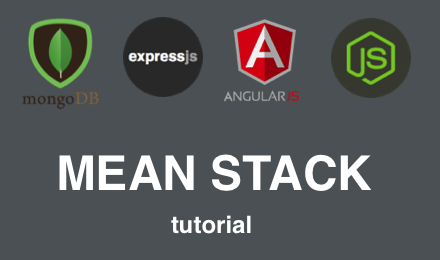On reaching 50 (blog posts)
My thoughts and lessons learned having written over 50 blog posts and tutorials.
on
This week I realised that I had passed a mini milestone of publishing more than 50 posts! This is not a spectacular feat of literacy, but considering that some of the posts and tutorials that I write are very detailed and technical, it’s a reasonable amount of content to prop up my small corner of the internet.

I had a bit of a lull in 2014 (but I did change jobs, tech stacks, the country I live in, the language I speak, and have a young child so it’s a fair excuse!) but a domain name change later (I used to blog at contentedcoder.com) and I’m getting back into the flow. I have also yet to write a clichéd ‘blogging about blogging’ post, so here it is…
Why I blog?
I use my blog as a platform to think out-loud, record a reference of topics I think I might need again in the future (like some tricky configuration, syntax, design patterns etc), and primarily to share knowledge with others.
Writing about a concept I have studied helps me to cement it into my long-term memory, and I think it’s a good idea not to waste key strokes. I’m also trying to write more better. I started blogging after I saw this presentation titled: Social Networking for Developers - Part 1 - Every Developer Needs a Blog.
Stats and Observations
By internet fame standards my blog stats are insignificant. Given that my blog is a hobby with no commercial objective, I’m pretty happy with my stats.
- On average I get ~100 unique visitors to my blog each day.
- Most traffic comes Monday to Friday i.e. developers who are working are visiting.
- At one point this year I had 500 unique visits in a day.
- A Nuget package I put together as a result of a blog post has ~8,000 downloads and counting.
- People are looking at my code on Github.
Clearly I won’t be a wealthy blogger any time soon, but based on the stats, I can confidently state that my blog has helped at least a hundred or more people learn something or get something done in their day job this year! If I were to invite all these people into my home office it might be a bit of a squeeze.
Some popular posts I’ve written are:
- ASP.Net 10 Years On: 10 Years of .Net Compressed into Weeks - I worked very hard putting together this series of posts and wrote a lot of accompanying code.
- MEAN Stack Tutorial - I helped some beginners learn the MEAN stack, so I shared the approach by way of these tutorials.
- The Four Pillars of a Good Software Developer - I published this post via the older domain name (contentedcoder.com) and at the time it was retweeted a lot.
- Asserting Exceptions in MSTest with Assert.Throws() - This post still gets visits every day from developers needing to know how to assert an exception in MSTest. It’s a short post I wrote and forgot about, but it’s still helping people.
Blogging Lessons I’ve Learned
Disclaimer: I still have a lot to learn with regard to blogging, but this is what I’ve observed to date.
Don’t turn Blogging into Work
Unless you’re being paid to write about a specific subject, you should write for yourself. Write about things that you think are interesting, otherwise blogging will become you working for others as opposed to sharing what you think is cool.
Before you declare to the world that you are going to create a blog series, I offer the following points of advice:
- It’s really difficult to put together a series of technical posts, so go easy on yourself.
- Don’t start it until you’ve completed the code project it relates to and you know exactly how it’s going to pan out.
- It’s easy for a series to explode into a wide array of side concepts and related posts, so plan carefully.
- Always buffer at least one post, so that you can release with regularity and not feel under pressure.
I often stumble across blogs that have a half completed series of posts that was the last post published, and that’s likely because the writer took on too much and ran out of motivation.
Remove all areas of Friction
An important factor in the lack of motivation I experienced in 2014 was the friction I had with the Blogger platform when creating blog posts. I usually include code samples in my posts and often ran into snags with syntax highlighting and formatting. The result of this meant that I would have to constantly re-paste in my code samples to correct formatting issues when working with the Blogger online editor and the offline editor I was using.
This was slowly chipping away at my motivation as it made crafting posts take longer than they should have. I wrote more about my new setup using Sublime Text and Githug pages. Prioritise ease of publishing over themes, layout etc.
Don’t try to be Perfect
Do your best but don’t try to be perfect. I still struggle with this. It’s not to say that I think everything I create is perfect, rather it’s the practice of over thinking a post, changing a bit, adding an extra bit, undoing the change that you previously changed and so on. This cycle can be never ending, it will overcomplicate and delay every post you create, and is a serious threat to continuity.
The downside of spending a lot of time over perfecting a post is that in 80% of cases for new blogs it’s unlikely that more than a few people will actually see it, leading to disappointment when considering the hours of effort and tweaking versus the page hits.
Here is a great video titled Focus On Being Crappy In Order To Become Great from John Sonmez. The idea is to acknowledge that not everything we do will be great and to focus on the incremental process of improving. I try to be an incremental theorist with everything I do. Important Note: I said I “try”.
The key idea of this principle is:
Not to focus on what the outcome will say about you, but what can be attained from taking part in the venture.
But remember, do your best.
Pomodoro Writing
The faster you can write without having to re-edit too much the better. A simple trick in developing your writing speed is to set a timer for 20 minutes and write without re-editing (too much) until the time is up. Over time you will find that you have to edit a lot less. By the way, don’t forget the previous point when reviewing and editing what you wrote!
Speak to your Computer
Sometimes I don’t feel like writing, so I speak instead. I have a Mac, and the speech to text functionality is pretty accurate. If you’re having difficultly getting into the writing flow, grab your headset and talk at your computer. You can edit it later on. I’ve haven’t tried this with Windows, please leave a comment if you have and can offer any tips to other readers.
Nobody cares about your Blog (but they are looking)
A very small percentage of people will comment on your blog. I tend to get emails or private messages as opposed to comments for some posts that I’ve written, but based on the web stats, activity on Github, rss subscribers and retweets via Twitter, I know that readers are using the content that I create.
Don’t be afraid to share your work
Don’t hesitate in submitting your work to as many channels as possible, be it Twitter, Facebook, DZone, ASP.Net community etc. Don’t start spamming your twitter followers, but if you think something that you’ve written could help somebody else then don’t keep it to yourself. You’re not sure that it’s good enough? The worst case scenario is no shares or retweets, so if you can live with that, then don’t hesitate.
What’s Next
If you’ve been following my blog you may notice I’ve been talking less about C# and .Net and more about JavaScript and related technologies. This will continue and you can expect a lot more content about AngularJS in the immediate future. I have plans for some screen casts in the longer term.
Thanks for being a reader of my blog.

